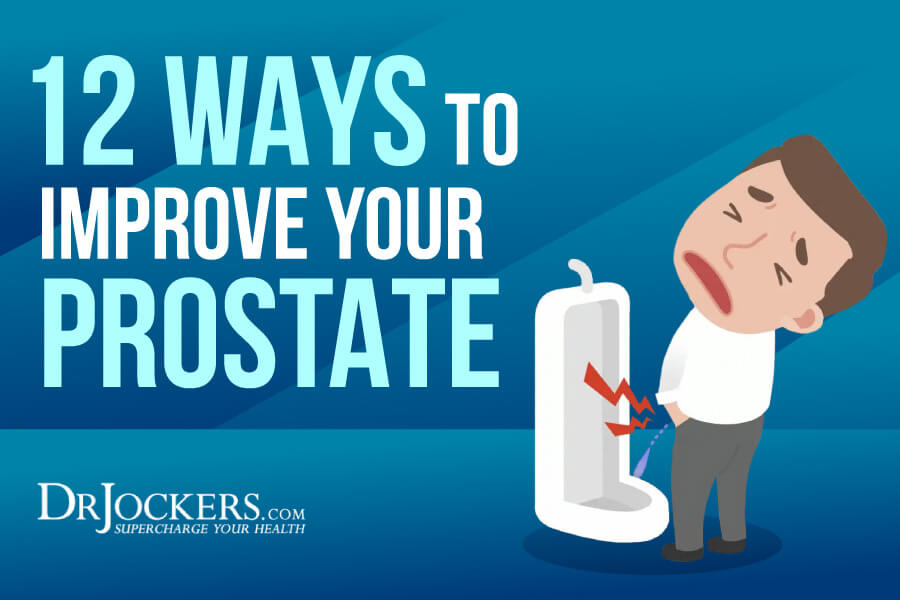
12 Ways to Improve Your Prostate
The prostate gland is a key player in the male reproductive in that it secretes a good % of the makeup of male sperm. The gland is about the size of a walnut and sits just below the bladder in men. A common health problem today is prostate inflammation and cancer. Fortunately, this disorder is completely preventable and reversible through a healthy lifestyle.
Common symptoms associated with prostate enlargement include frequent urination, urinary urgency, difficulty starting, reduced force of the urine stream, terminal dribbling, incomplete emptying of the bladder, and the inability to urinate at all (1, 2).
It is believed that most men experience some level of prostate enlargement by the age of 45, but many do not have symptoms. By the age of 60, it is believed that 80% of all men experience some sort of urinary problems due to prostate enlargement (3, 4).
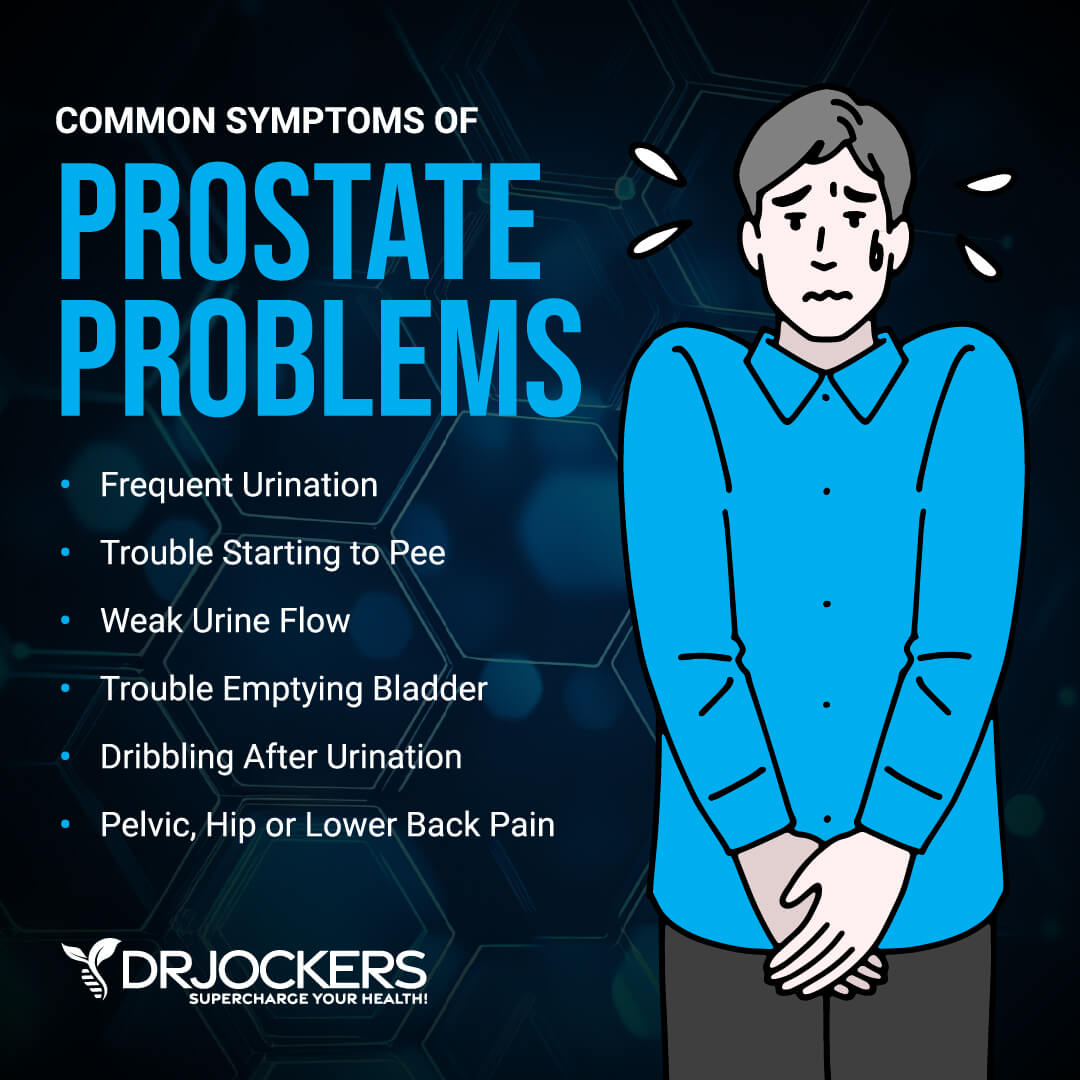
The Prostate Filters Toxins:
The prostate gland was designed to filter toxins and impurities out of the semen to produce its finest sperm product for the conception and reproduction of a strong, healthy species. The most common impurity in our systems today is xenoestrogens or man-made estrogen mimicking molecules (5, 6).
These chemicals disrupt the normal male estrogen-testosterone balance and lead to unwanted prostatic growth. As with any degenerative disease, oxidative stress from excess free radicals and inflammatory agents is also a critical factor in prostatitis and prostatic carcinomas (7, 8).

Sedentary Lifestyle and Prostate Health
The prostate depends on a healthy amount of circulation to bring fresh blood and oxygen in this region. A sedentary lifestyle creates congestion and stagnation in the prostate. Certain population groups are at a higher risk than others (9).
These are people who spend longer periods in a seated position with increased pressure from automobile vibrations. This includes truck drivers, bus drivers, motorcycle riders, pilots, and people with long daily commutes. Another group at risk for prostatic problems includes bicycle riders since they experience increased pressure in the groin as they ride.
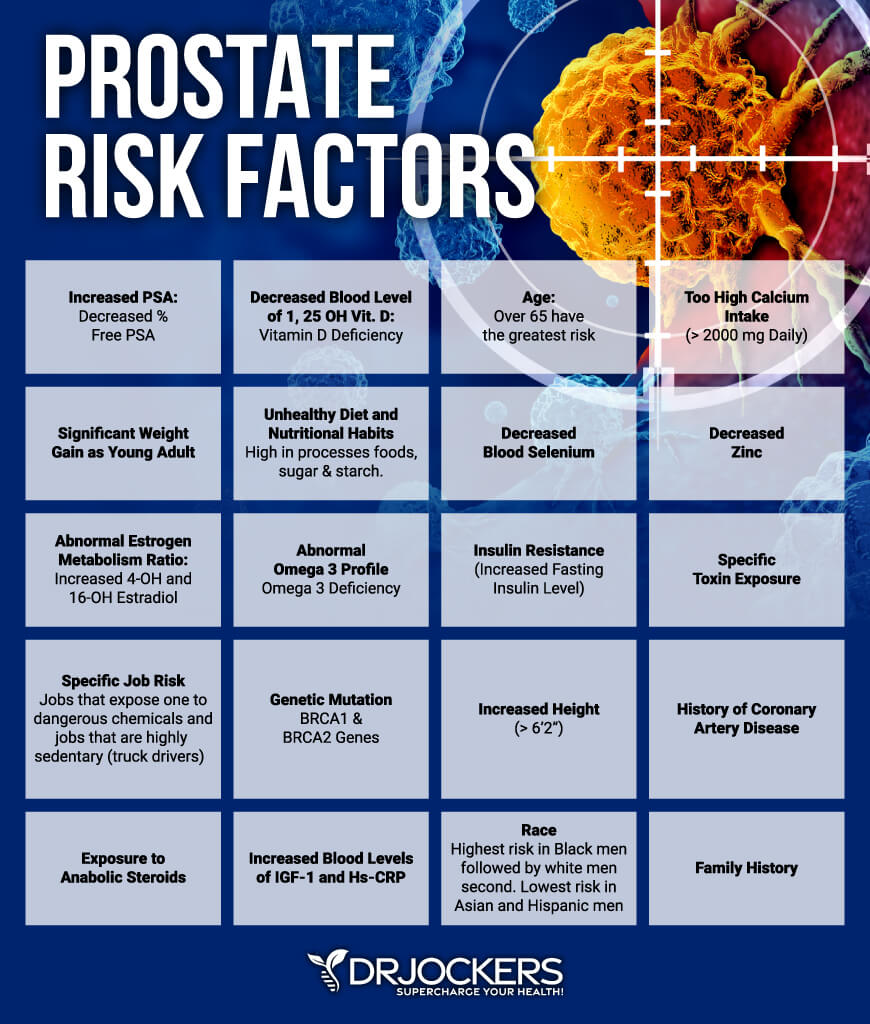
Nutritional Solutions:
An anti-inflammatory diet rich in phytonutrients from fresh fruit and vegetables is critical. Eliminating all processed grains, meats, and dairy products is essential. Load the diet up with good fat sources such as avocados, olive oil, coconut oil, nuts, and seeds.
Grass-fed and free-range meat products are important components. These meats are rich in zinc and omega 3 fatty acids, which are extremely critical for healthy prostate function (10, 11, 12). Use natural anti-inflammatory based herbs such as cinnamon, oregano, turmeric, ginger, garlic, and rosemary.
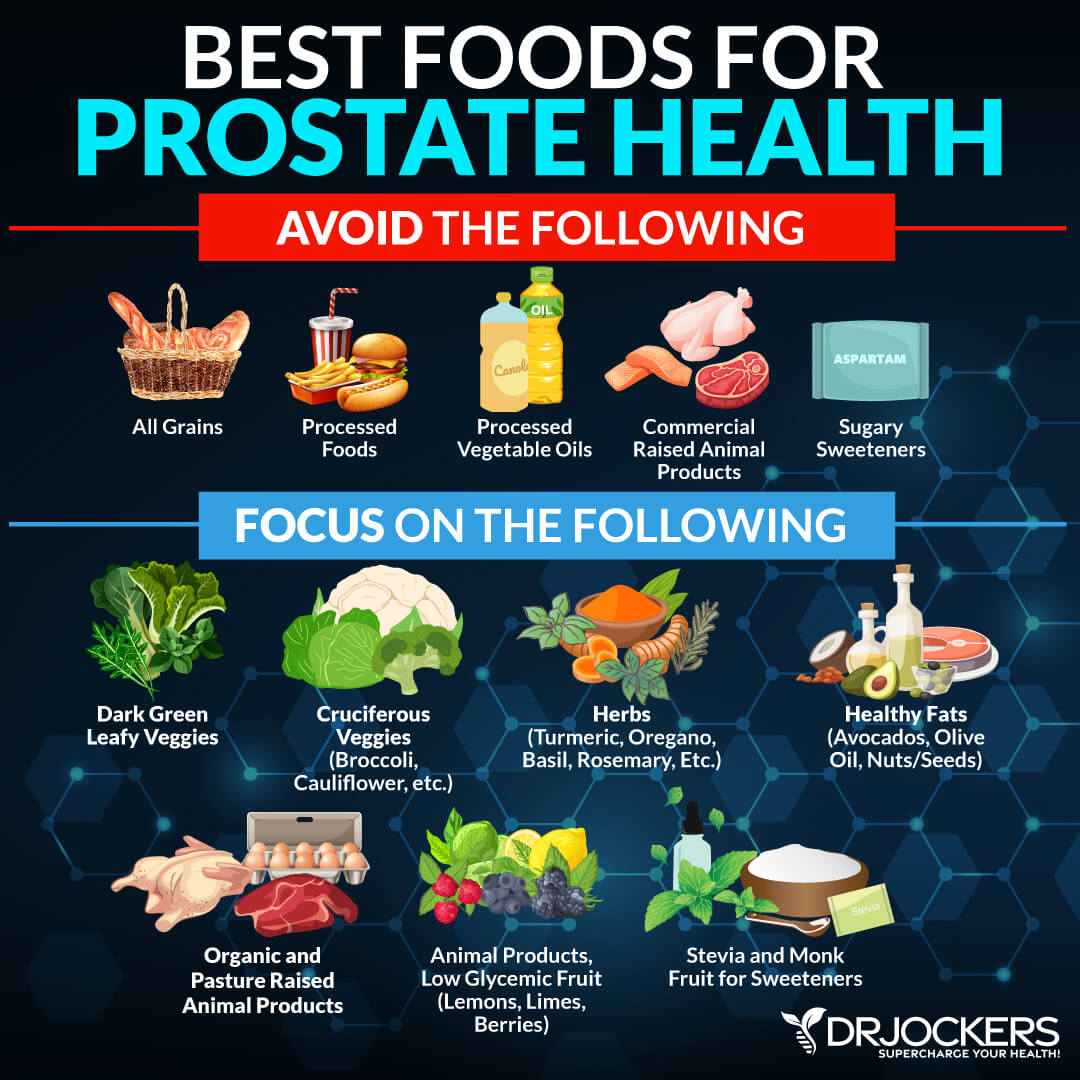
Consume Aromatase Inhibiting Foods
Aromatase is an enzyme that is found in estrogen-producing cells located in the adrenal glands, ovaries, placenta, testicles, brain, and fat tissue. Higher levels of aromatase in the body convert more testosterone and progesterone into estrogen.
Elevated aromatase activity and estrogen dominance are some of the most common factors associated with breast, uterine, and ovarian cancers in women. Prostate, colon, and breast cancer in men are associated with estrogen dominance.
Certain nutritional compounds are particularly good for blocking aromatase and preventing and reversing inflammation of the prostate. Sulfur-rich veggies such as garlic, onions, chives, leeks, and avocados are all very helpful. Consuming organic and grass-fed animal products as opposed to conventional meat products significantly reduces the estrogen load as well.
Cruciferous vegetables such as broccoli, broccoli sprouts, kale, collard greens, and cabbage contain Indole -3-Carbonyl, isothiocyanate, and sulforaphane, which help remove excess estrogens and other toxins from the body (13, 14, 15). The best food source of these powerful nutrients is cruciferous sprouts such as broccoli and kale sprouts.
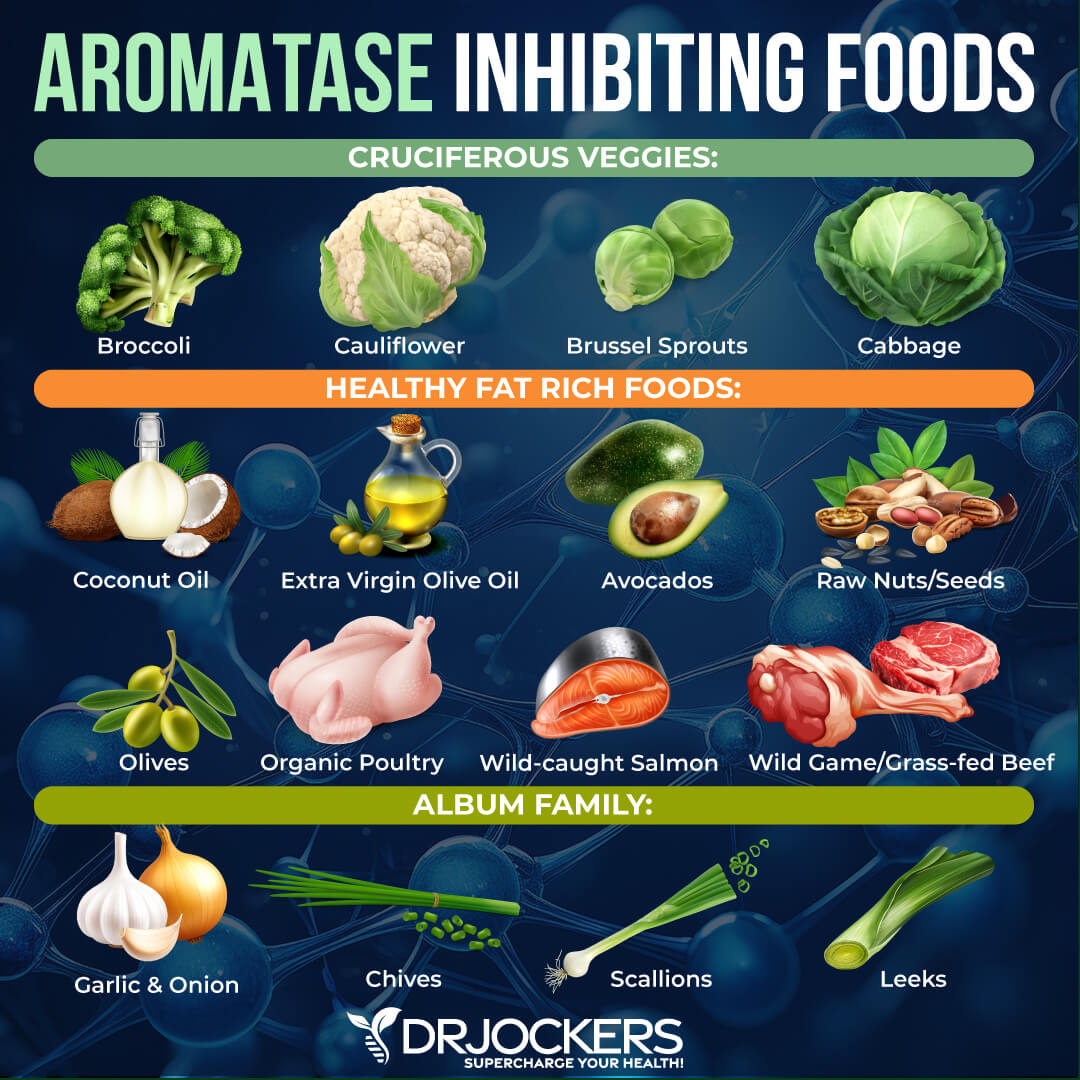
Consume Lycopene and Green Tea:
Lycopene is an antioxidant normally found in the prostate, but it declines with age and poor lifestyle (16). The best food sources include grapefruits, tomatoes, red peppers, goji berries, and raspberries. Be careful not to consume too much of these, as they are higher in sugar.
Green tea and its polyphenolic antioxidants epigallocatechin gallate (EGCG) are also a powerful protection for the prostate (17, 18). Epidemiological observations have suggested that people who consume green tea regularly have a lower risk of prostate problems.
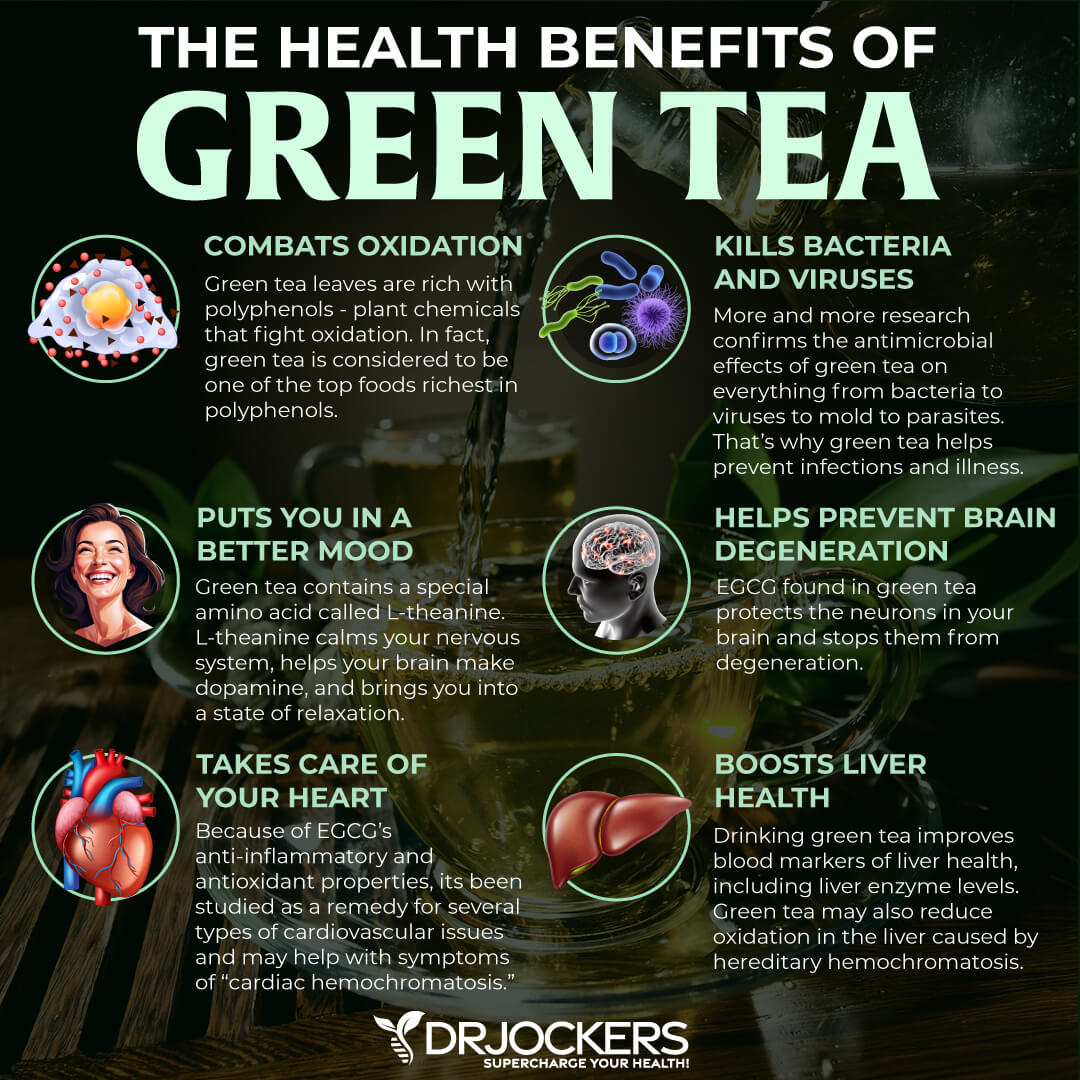
12 Ways to Improve Your Prostate:
Here are 12 key steps to follow in order to maintain healthy prostate function. If you apply these principles and do not see a significant change in your prostatic health as well as your mood, energy, weight, and libido, then I would highly recommend working with a natural health care practitioner.
A good practitioner can run functional labs to assess for a chronic infection or environmental toxin exposure that may be holding you back from achieving your health goals.
Anti-Inflammatory Diet:
Eating an anti-inflammatory diet rich in nutrient-dense foods is one of the foundational things you can do to support optimal testosterone levels. First, eliminate all inflammatory foods, including refined sugar, gluten, refined oils, deep-fried and processed foods, conventional dairy, grain-fed meat and eggs, soda and sugary drinks, and foods that you are sensitive to.
Focus on good fats, antioxidants, and clean proteins. Good fats such as coconut oil, grass-fed butter, avocados, olives, olive oil, and fish oil provide the key fatty acids needed for testosterone production.
Healthy animal products such as grass-fed beef, bison, lamb, antelope, deer, and free-range chicken, turkey, and eggs should be used generously. It is also important to include lots of clean water and phytonutrient-rich raw and lightly cooked vegetables.
Getting into ketosis will enhance mitochondrial function and support healthy hormones and prostate function. Learn more about following a ketogenic nutrition plan here, and avoid exposure to herbicides and pesticides by choosing organic food as much as possible.
Intermittent Fasting:
Intermittent fasting is a form of fasting cycle between not eating (fasting) and eating (feasting) over a period of time. The benefits of intermittent fasting include cellular repair, autophagy, immune regulation, inflammation levels, and insulin sensitivity.
It also helps to improve human growth hormone and testosterone production in males. Going 16–18 hours between dinner and breakfast is one of the best ways to improve mitochondrial production. Your body improves energy efficiency by increasing and strengthening the mitochondria during periods of fasting. Consume your meals in a 6–8-hour window, such as 11 AM–7 PM or 12–6 PM.
When you do this, you enhance cellular healing, and this includes autophagy of the overgrown prostate cells. Fasting increases the production and utilization of ketones as an energy source, which reduces inflammation and improves testosterone production. To learn more about the benefits of intermittent fasting and the best intermittent fasting practices, I recommend this article.
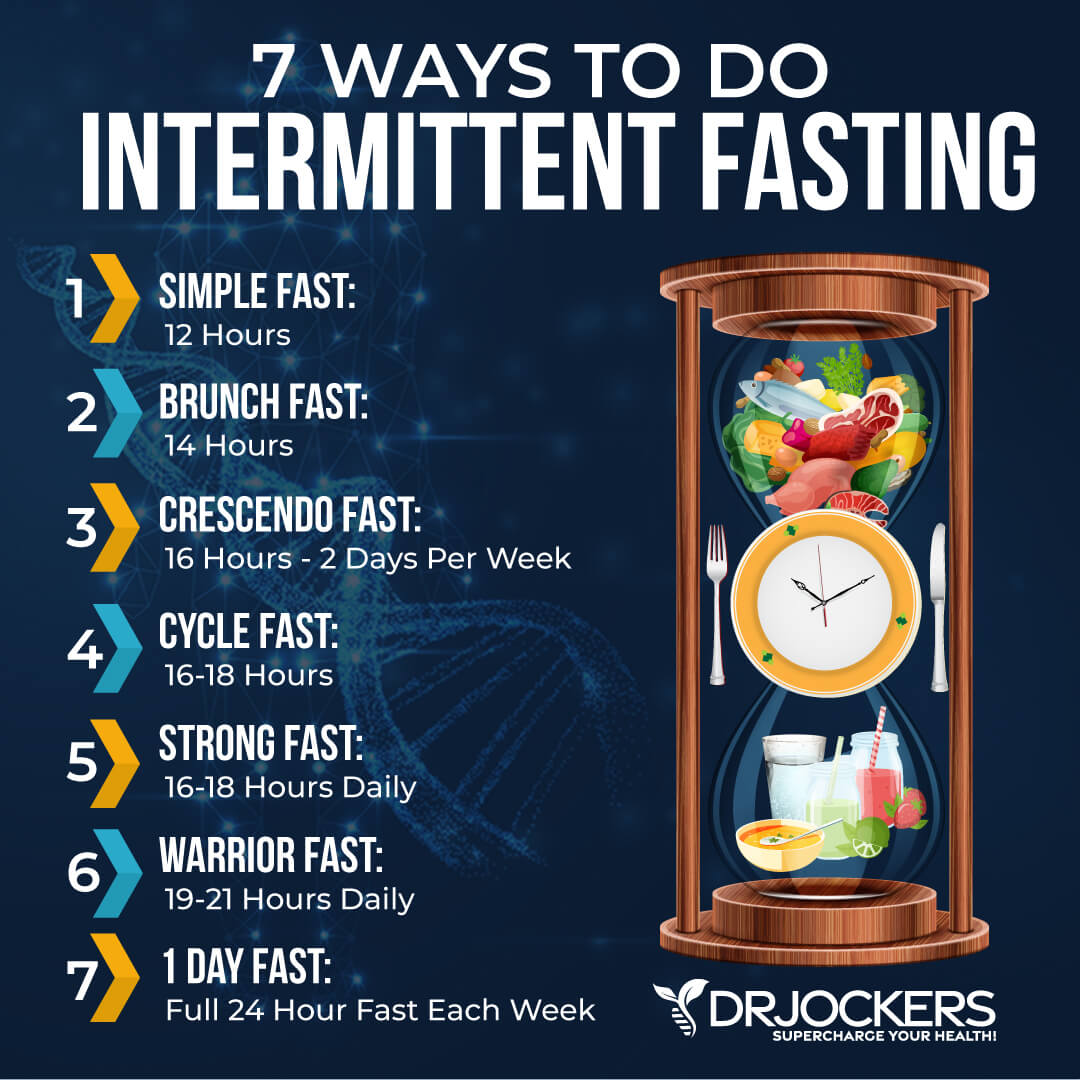
Optimize Your Vitamin D:
One of the main benefits of getting out into the sun is a natural boost of vitamin D. No wonder that vitamin D is also called the sunshine vitamin. Vitamin D is an important vitamin that is critical for many areas of your health, including your immune function, bones, muscles, and mental health.
Low vitamin D3 (less than 60 ng/ml) is associated with low testosterone production and increased prostatic growth (21, 22, 23). Since obtaining enough sunshine while spending a lot of time indoors during the colder months is difficult, supplementing with vitamin D is critical. In fact, vitamin D is one of those vitamins that everyone may benefit from.
I recommend taking a daily vitamin D3 supplement with vitamin K2. Vitamin K2 optimizes the absorption of D3 and further enhances your health. Be sure to increase your vitamin D through good amounts of regular sun exposure and/or take a high-quality vitamin D3/K2 supplement.
Reduce Stress and Improve Sleep:
Chronic stress causes a reduction in testosterone production and poor prostate function. It is absolutely critical to keep stress balanced in order to produce healthy sex hormones. Chronic stress will result in elevated stress hormone production, lowered testosterone, and reduced prostate health
Prioritizing good sleep is just as important as reducing your stress levels. Develop a regular schedule of going to bed and getting up at the same time every day to support your circadian rhythms.
Avoid electronics, sugar, caffeine, heavy foods, and stress close to the bed. Engage in relaxing activities, including stretching, relaxing baths, meditation, and prayer. Make sure that you have a supporting bed, pillow, and bedding, and sleep in a dark, calming room.

Zinc and Magnesium:
Be sure to optimize your zinc and magnesium levels. Both of these nutrients are key for testosterone production and healthy prostate function.
Magnesium helps to improve blood sugar signaling patterns and protects the blood-brain barrier. Zinc plays a critical role in enzymatic function, immunity, and reproductive health. Prostate issues are very commonly associated with zinc deficiencies, and improving zinc status has been shown to diminish the triggering of prostate cell multiplication (19, 20).
The best magnesium and zinc-rich foods include oysters, shellfish, wild-caught fish, eggs, grass-fed animal products, and pumpkin seeds. You can also do Epsom salt baths to support your magnesium levels.
It would also be wise to supplement with a good magnesium and zinc supplement. Look for magnesium L-threonate, which is the best form of magnesium for crossing the blood-brain barrier.
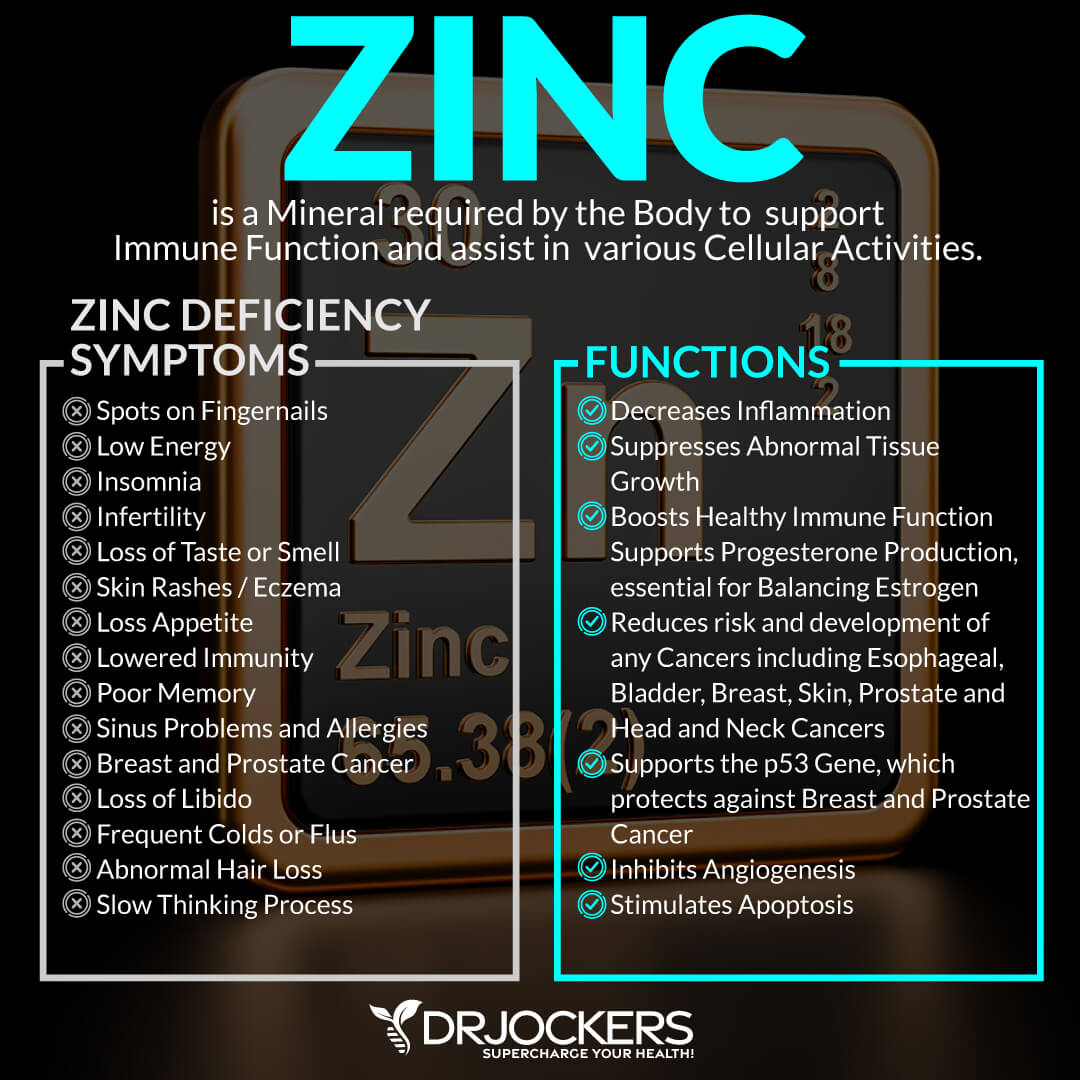
Reduce Estrogen Load:
Avoid foods with phytoestrogens such as soy, flax, and many beans. Additionally, consume lots of cruciferous veggies and in particular broccoli sprouts, which have tons of I3C and DIM, which help to detoxify bad estrogen metabolites that cause problems with estrogen/testosterone balance. I also recommend steamed crucifers (broccoli, cauliflower, cabbage, Brussels sprouts, etc.) with grass-fed butter/ghee melted over the top and added herbs.
Toxins in your body may increase your risk of high estrogen and low testosterone. It is important that you improve your detoxification pathways to support your body. Remove toxic, non-organic ingredients in your food, beauty, body, and cleaning products.
Make sure that you drink purified, clean water instead of regular tap water and invest in an air purification system. Spend time in the fresh air. Support your lymphatic health through dry brushing. Practice fasting or intermittent fasting. I also recommend our Thyroliver protect supplement to support detoxification.
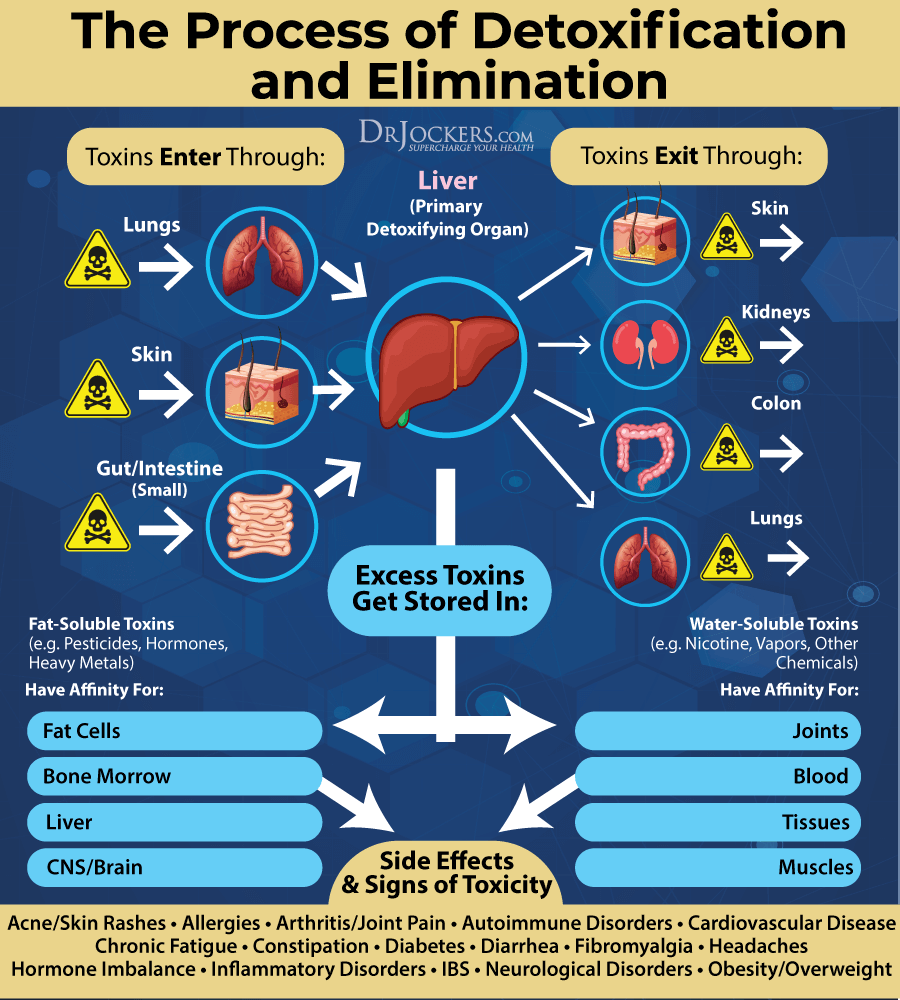
High Intensity Exercise:
High-intensity training, especially resistance training, boosts testosterone and supports optimal prostate health. Do large muscle groups, and compound exercises such as squats, lunges, bench presses, T-bar rows, pull-ups, overhead presses, etc. Be sure to lift heavy!!
The more muscle tissue that is intensely stimulated, the more testosterone production will go up. Be sure to get good rest between workouts. I like to do an upper body day, a lower body day, and then a day off. Then back to upper body and lower body, and then another day off…and so on and so on.
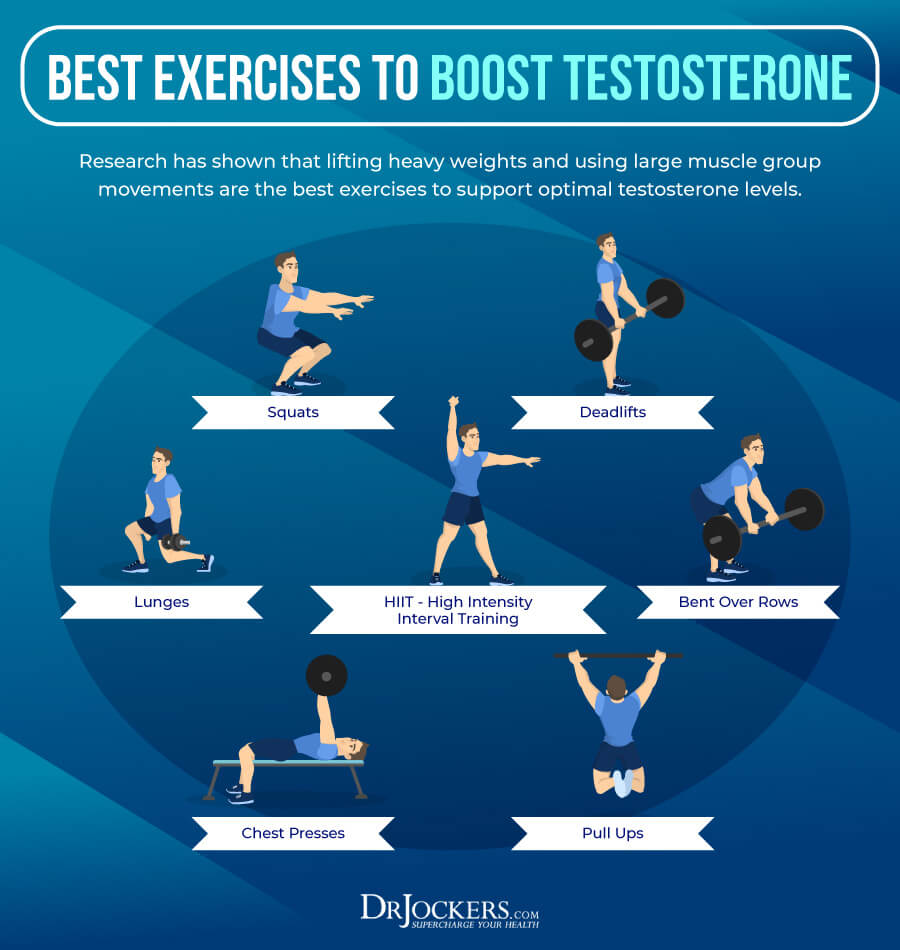
Low Intensity Movement:
A sedentary lifestyle depletes testosterone and impacts prostate health, but so does doing too much training. Be sure that your workouts are intense but short (30 minutes max). Throughout the day, get a lot of low-intensity movement such as walking, light cycling, playing, etc.
Low intensity movement helps improve circulation, improves mood and happiness, and balances stress hormone production. Doing this on a regular basis will also improve testosterone production and improve circulation in the prostate region, which will improve its function.
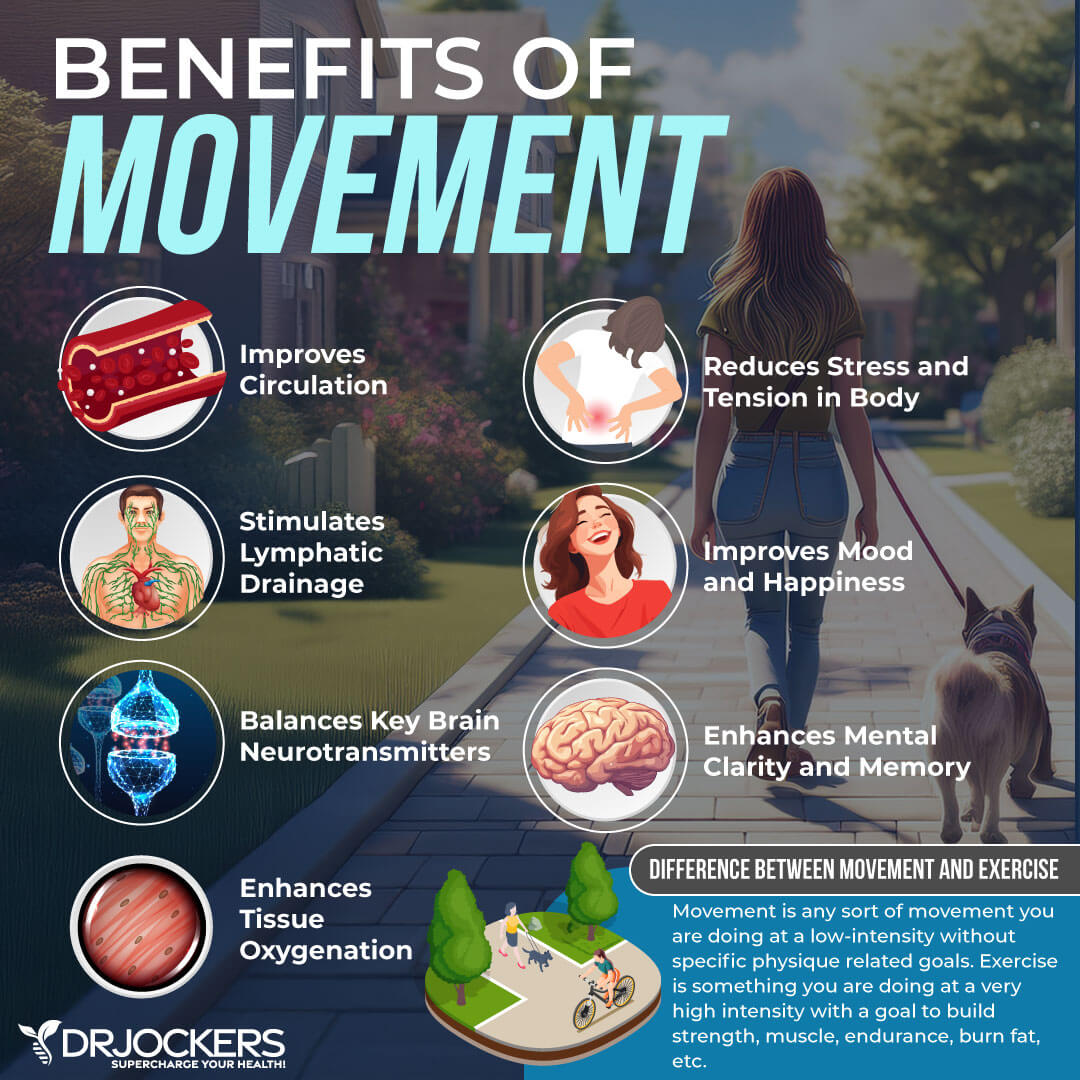
Support Gut Health
The health of your microbiome is critical to how you handle stress and produce sex hormones. It is important to eat an anti-inflammatory diet and use herbs like ginger, turmeric, aloe vera, chamomile, licorice root, and marshmallow root in order to support overall gut health.
Eat plenty of fermented foods, such as kimchi, sauerkraut, kefir, and kombucha. Take a daily probiotic supplement, such as ProbioCharge, to support a healthy gut microbiome. I also recommend Gut Repair for gut dysbiosis and gut health issues.
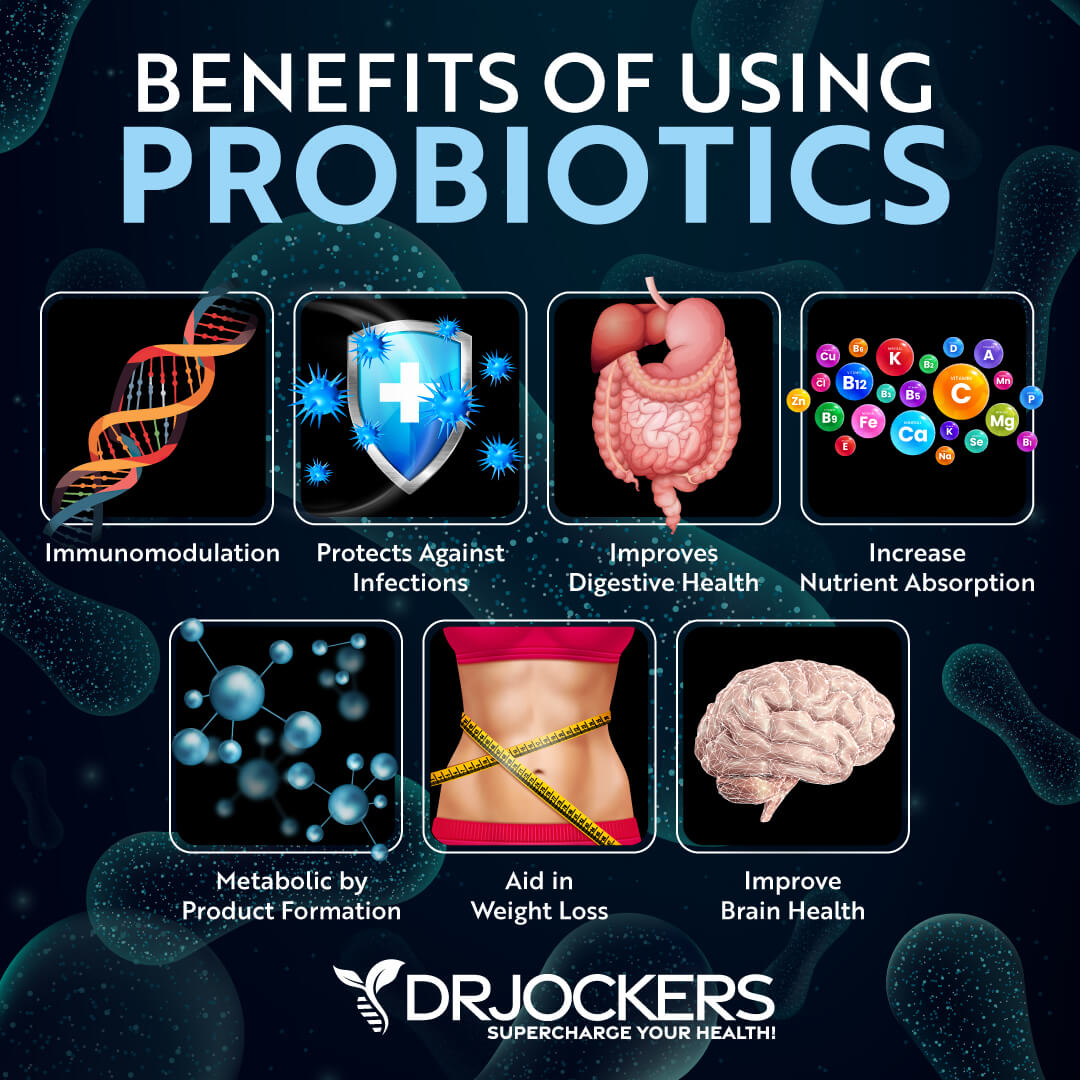
Take Omega 3 Fatty Acids
I have all of my prostate clients using 2-5 grams of omega-3 fatty acids. This helps to reduce inflammation in the prostate and improve testosterone production. Research has revealed that high-dose omega-3 fatty acids are very effective at reducing prostatic growth (24, 25).
Omega-3 fatty acids are essential fats that are found in fatty fish such as wild-caught salmon and sardines, grass-fed meats, pasture-raised eggs, nuts (especially walnuts), and seeds (flax, hemp, and chia seeds). Flax, hemp, and chia seeds have the added benefit of improving estrogen levels in the body.
However, if your health is compromised, meeting your omega-3 needs may be difficult via diet alone, and you may benefit from supplementation.
Plant-based omega-3s such as flax oil only contain the small-chain omega-3 called ALA and do not have any DHA. It is very hard for our body to convert ALA into DHA, so it is best to get a high-quality fish or krill oil that is rich in EPA and DHA. You want to find a brand that is molecularly distilled to take out any heavy metals and other unwanted contaminants.
I like the ProOmega Curcumin for optimal prostate health because it combines a clinical dosage of EPA and DHA with curcumin, glutathione, and N-acetyl cysteine for optimal inflammatory and hormone balancing support.
Use a Prostate Support Supplement
The most clinically tested herbs to improve prostate and urinary health include saw palmetto, pygeum, and cranberry. Cranberry fruit is recognized as a rich source of oligosaccharides and phytochemicals, including proanthocyanidins, flavonols, and triterpenoids.
Saw palmetto inhibits 5-alpha reductase (5AR)—the enzyme that reduces testosterone to the more potent androgen dihydrotestosterone (DHT). The use of pygeum dates back approximately 300 years, and extracts are a well-known and often-used alternative for supporting prostate health in many European countries.
As previously discussed, zinc is also very important, and clinical doses range between 30-80 mg daily depending upon their plasma zinc levels and copper: zinc ratio. I use a highly absorbable form of zinc glycinate chelate. It is in my prostate formula along with vitamin B6 and powerful herbs such as saw palmetto, pygeum, and more. This product is called Prosta Protect
Final Thoughts on Prostate Health
Poor prostate health is a common and growing health condition that is characterized by low testosterone, frequent urges to urinate, reduced muscle strength, and poor libido. The strategies I discussed in this article are not FDA approved to prevent, treat, mitigate or cure prostate disease but they have been helpful for many individuals looking to improve their sexual and hormonal health.
If you want to work with a functional health coach, I recommend this article with tips on how to find a great coach. On our website, we offer long-distance functional health coaching programs. For further support with your health goals, just reach out—our fantastic coaches are here to support your journey.
Inflammation Crushing Ebundle
The Inflammation Crushing Ebundle is designed to help you improve your brain, liver, immune system and discover the healing strategies, foods and recipes to burn fat, reduce inflammation and Thrive in Life!
As a doctor of natural medicine, I have spent the past 20 years studying the best healing strategies and worked with hundreds of coaching clients, helping them overcome chronic health conditions and optimize their overall health.
In our Inflammation Crushing Ebundle, I have put together my very best strategies to reduce inflammation and optimize your healing potential. Take a look at what you will get inside these valuable guides below!
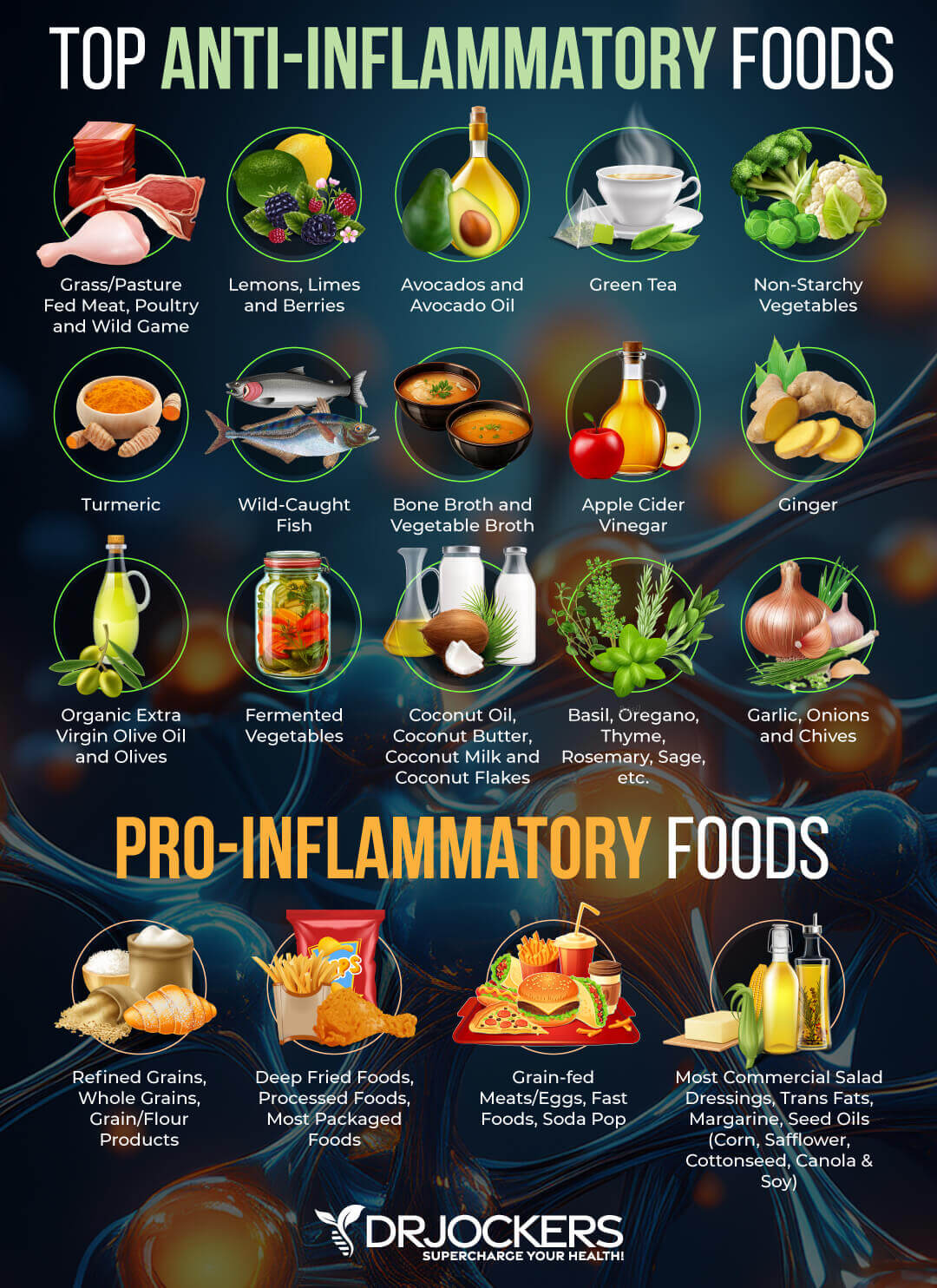
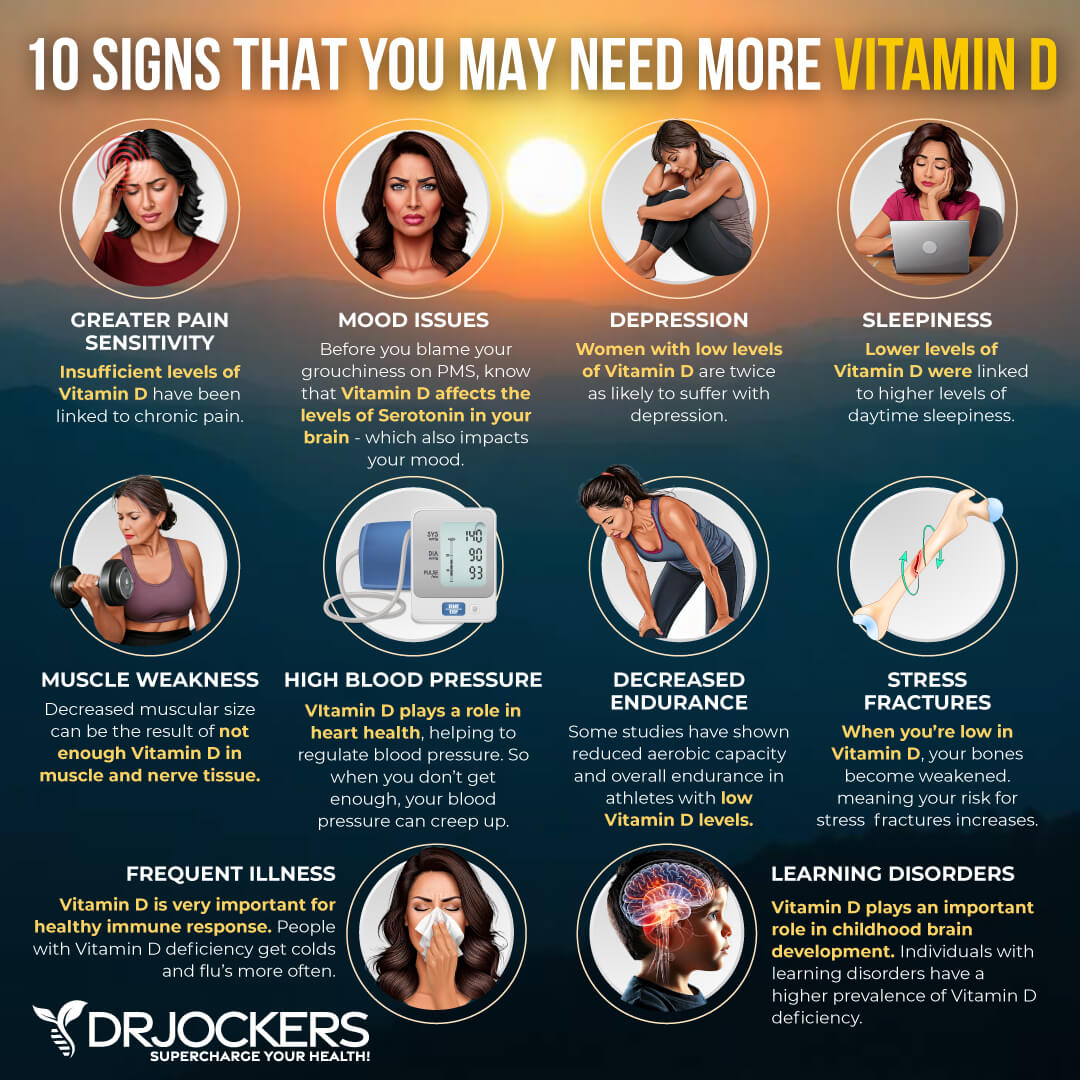
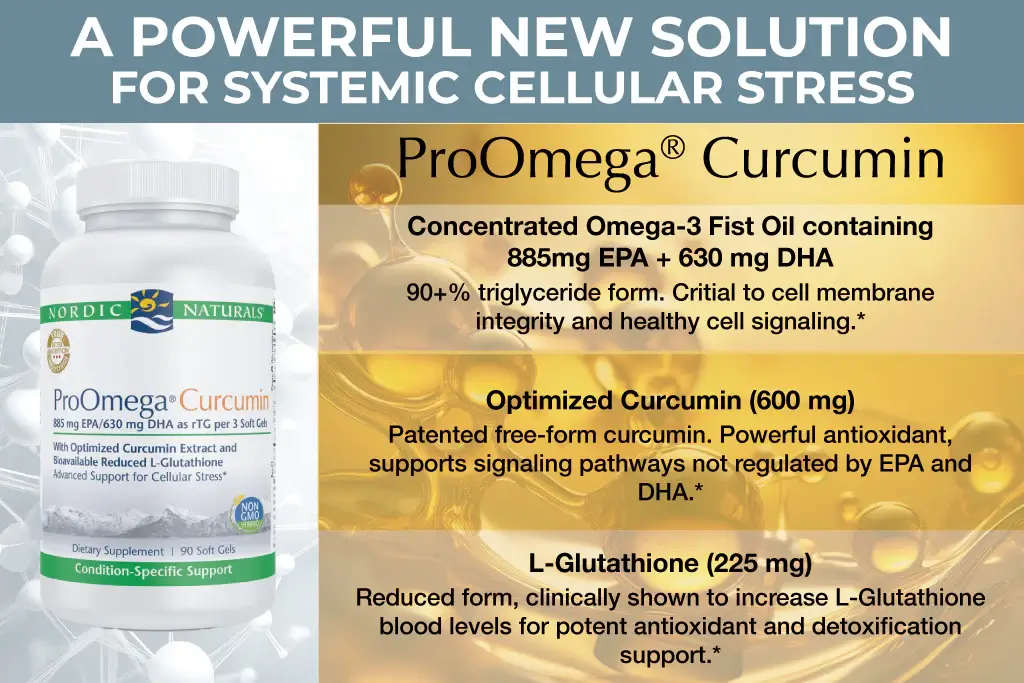





Hello Dr David
Awesome information regarding prostate problem. In 12 Prostate Health Action Steps at point 9 you mentioned – Low intensity Movement e.g. walking? But at subsequent point you advised intermittent fasting as well. Intermittent fasting has enormous benefits without any doubt. But generally with intermittent fasting I heard of High Intensity / Burst training??
So in case of prostate problem ( enlargement ) if somebody is practicing intermittent fasting + other measures advised by you? Should he go for low intensity training or high intensity training? If low intensity training is okay, then what is it’s advantage over high intensity and why not high intensity traing? There is some confusion on this important issue. Kindly clarify .
With regards,
Dr Prakash Chhajed
Yes, one with prostate problems can do both high intensity and low-intensity exercise. The key is to avoid being sedentary for long periods of time.
Thanks a lot Dr David for your kind words.
I am a 56 year old male. I consider myself as a ver active man, fit, strong, healthy eater and lifestyle, normal blood markers, slight middle age spread. I went high fat low carb for 4 years , felt great, lost 8 kgs but my PSA count started increasing (from 2.5 to over 5) and my urine stream slowed down (typical BPH). If I go strictly vegan (not vegetarian), which includes plenty monounsaturated (olive oil and nuts) and natural polyunsaturated fats (nuts – not vegetable oils) for a month (punishment month),it has helped me a lot to stay healthy, I also take alpha rise health, it is really good and natural!
Hey Julio, you are doing good, but be sure to follow the recommendations in this article. In particular, adding in zinc, which is typically very low in vegans.
Dr. Jockers,
My husband who is only 38 had his psa level tested as apart of a routine physical for his work. His psa level came back at a 7.8! It was tested again about a month later and was lower at 4.1 but also concerning was his free psa level which the doctor said was “low.” He doesn’t have any symptoms of prostate problems but the doctor wants to do a biopsy anyway. I have been a supporter of TTAC for several years now and am not in favor of a biopsy. The doctor said he had never done a biopsy on a patient so young. We are scared and confused about what to do and who to trust. In your opinion would it be a good idea to begin the supplements/herbs and change his diet while monitoring his psa for a few months especially before agreeing to a biopsy? Is there any other way to diagnose prostate cancer instead of a biopsy? Thanks for your help!
-M
I would not recommend the biopsy but would recommend that he do some coaching on diet and supplements with our functional diagnostic nutrition practitioner Michael. Periodically rechecking PSA markers would definitely be a good idea as well.
So what happened,how dod this proceed? I am very interested cause this reaction of ‘needing a biopsy’ is sort of standard practice
Yes follow the recommendations in the article Brenda! Be Blessed!
Hello Dr. Jockers,
I follow you for a long time reading with great interest trough the articles that you contribute to our education.
Please, I have the following question for you with respect to the above article.
Two year ago, my PSA was 1.5. This year I had the unpleasant surprise to see that is 25.64. I did redo it right the way and second time it was 25.43.
I am 51 years old, fit, I do a lot of physical exercises daily, I eat organic, no processed foods, no milk, no gluten, drink a lot of water and I have a beautiful relation with my wife.
I am scheduled for an MRI at the end of the month.
Besides all the above recommendation, would you recommend also essential oils? What about CBD and THC?
I have no family cancer history, no toxin exposure, it is kind of weird the whole situation.
I don’t know yet if is BPH or cancer.
Can you please tell me your thoughts?
Thank you,
Viorel Ciurea
Yes it does sound like that is the case. It is hard to know if it is cancer for sure but I would get it tested. CBD can be very helpful. Here is another helpful article: https://drjockers.com/prostate-cancer/